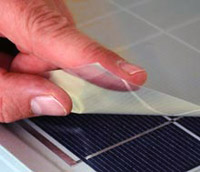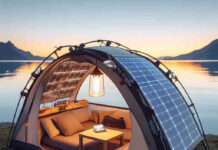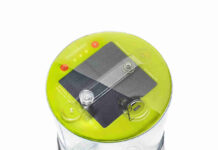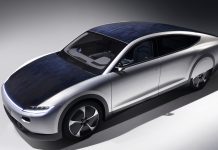 New ways of making solar panels more efficient in power generation are discovered every day. One of such device is a large transparent sticker applied to the front of the panel which increases the power output by about 10% or so.
New ways of making solar panels more efficient in power generation are discovered every day. One of such device is a large transparent sticker applied to the front of the panel which increases the power output by about 10% or so.
Genie Lens Technologies is the firm which has developed these polymer film stickers. These polymer films are imprinted with special kind of microstructures. Even the panels that have been prior installed and working can have these polymer stickers applied easily to them and the stickers will boost their efficiency.
Specialty of the microstructures: The microstructures on the polymer stickers are capable of bending and redirecting the sunlight. These materials in the panel are made to absorb more light and so more power is generated. Seth Weiss, CEO & Cofounder of Genie Lens, Englewood, CO is confident of the advantages of using these special films.
There are three main actions that are activated by these polymer films:
• Preventing light from reflecting off the solar panel surfaces.
• Trapping light to stay inside the semi conducting materials which absorb the light and then convert it into power.
• Redirecting the light that comes in so that the light will travel along the semiconductor material surface and not just pass through the material; this increases the likelihood of absorption of light more than before.
Special algorithms for the microstructures: All the above three purposes are achieved by the special pattern the microstructures. The polymer films direct and re-direct the light rays that fall on the solar panel. The glass cover that protects the solar panels, the semiconductor material that is within and the panel’s back surface – all react with the polymer films in a special pattern.
Just so re-direction of light rays: The polymer films bend the light just the optimal amount so it will not be reflected off and lost. It makes the light to be redirected right into the solar panel again to reap the maximum power generation. Improvement is present even when sky is cloudy.
Results claimed: National Renewable Energy Laboratory results prove the fact that the films increase power output between 4-12.5% even when cloudy weather makes the light diffuse. Just adding the films increase cost of power generation by 1-10% but benefits far outweigh the cost, claims the lab. The question to be proved is the test of durability – which will be best answered by future.



